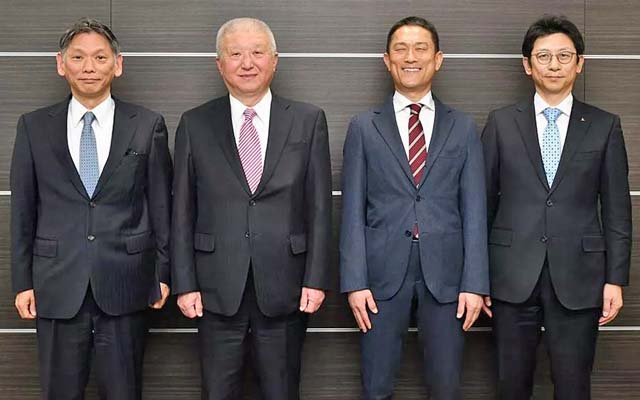Mitsubishi Shipbuilding, a part of Mitsubishi Heavy Industries (MHI) Group, has received orders for three methanol-fuelled ro-ro cargo ships, one each from Toyofuji Shipping, Miyazaki Sangyo Kaiun, and Nichitoku Kisen.
The three ships will be built at the Enoura Plant of MHI’s Shimonoseki Shipyard and Machinery Works in Yamaguchi Prefecture, with scheduled completion and delivery from 2028. The ships will be approximately 168m in overall length and 30.2m in breadth, of 15,750gt and loading capacity for around 2,300 passenger vehicles.
A windscreen at the bow and a vertical stem will be used to reduce propulsion resistance, while fuel efficiency is improved by employing MHI’s proprietary energy-saving system technology combining high-efficiency propellers and high-performance rudders with reduced resistance.
The main engine is a high-performance dual-fuel engine that can use both methanol and HFO, expected to reduce CO2 emissions per transport unit by more than 20% compared to ships currently operated by HFO alone owned by Toyofuji Shipping, contributing to a reduced environmental impact. In the future, the use of green methanol may lead to further reduction in CO2 emissions, including throughout the lifecycle of the fuel. Methanol-fuelled RO-RO ships have already been entered service as ocean-going vessels around the world. This is MHI’s second order for construction of coastal ro-ro vessels for service in Japan, following an order for two methanol-fuelled ro-ro vessels placed with Mitsubishi Shipbuilding in June 2024.
Image: Contract signing for three methanol dual-fuel ro-ro ships at Mitsubishi Shipbuilding (source: MHI)



